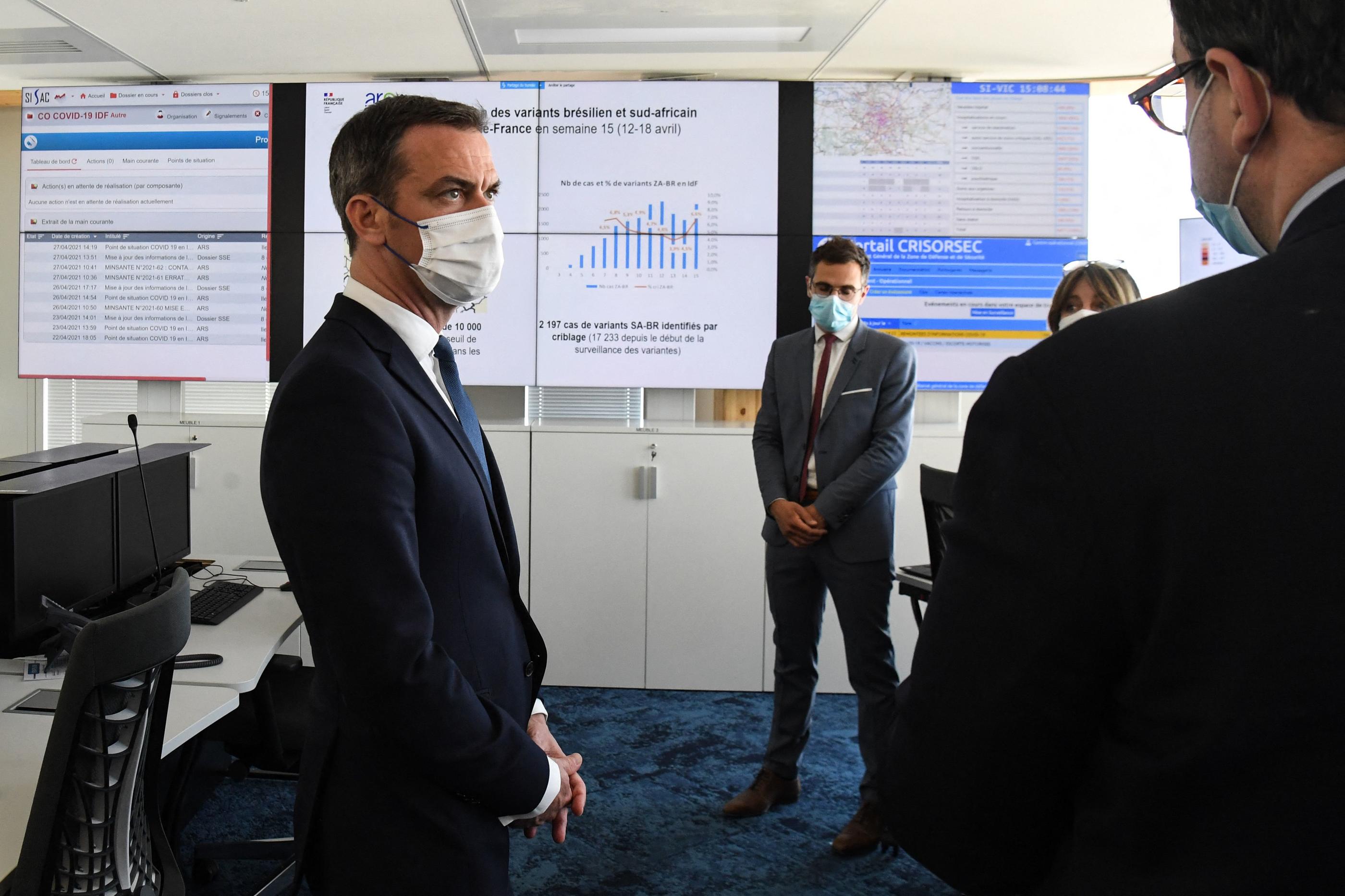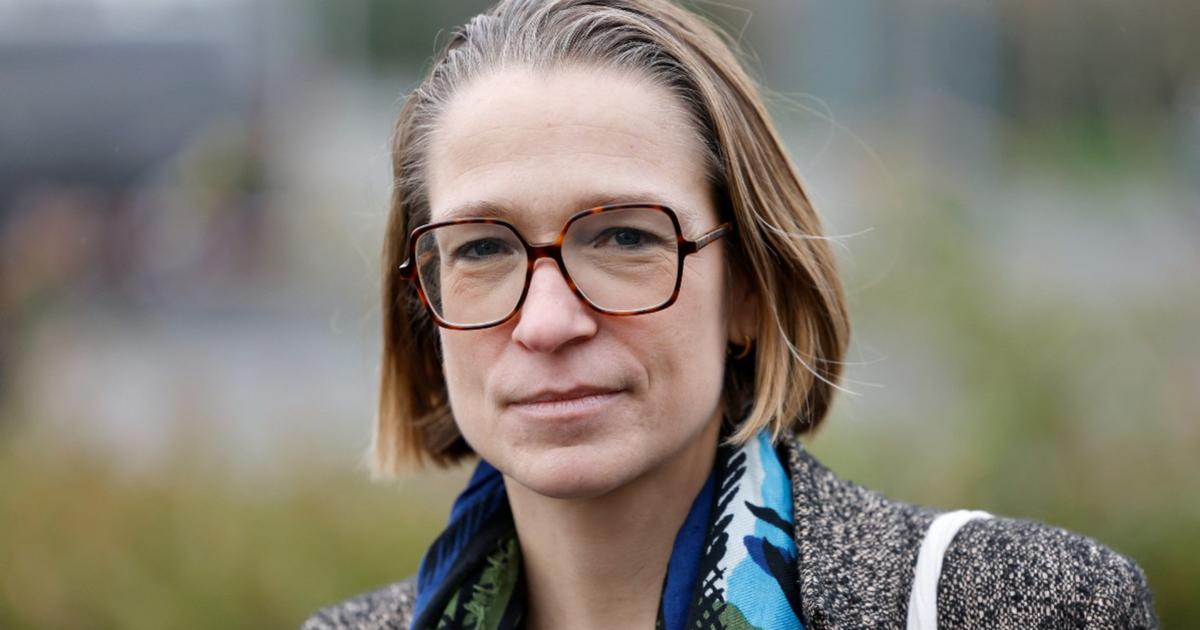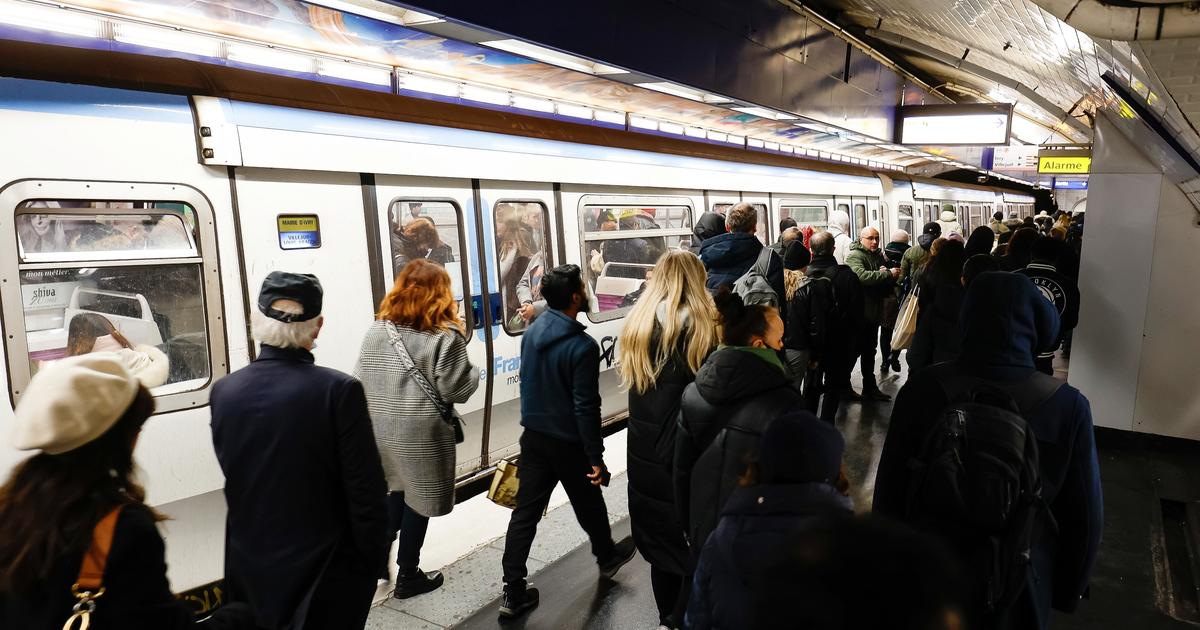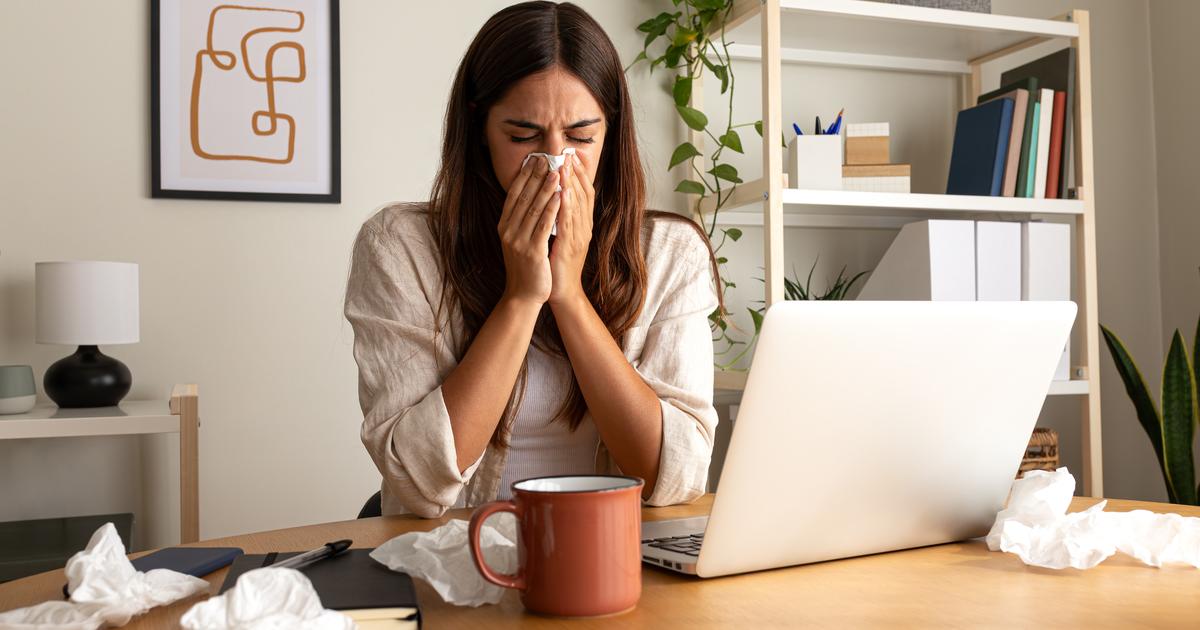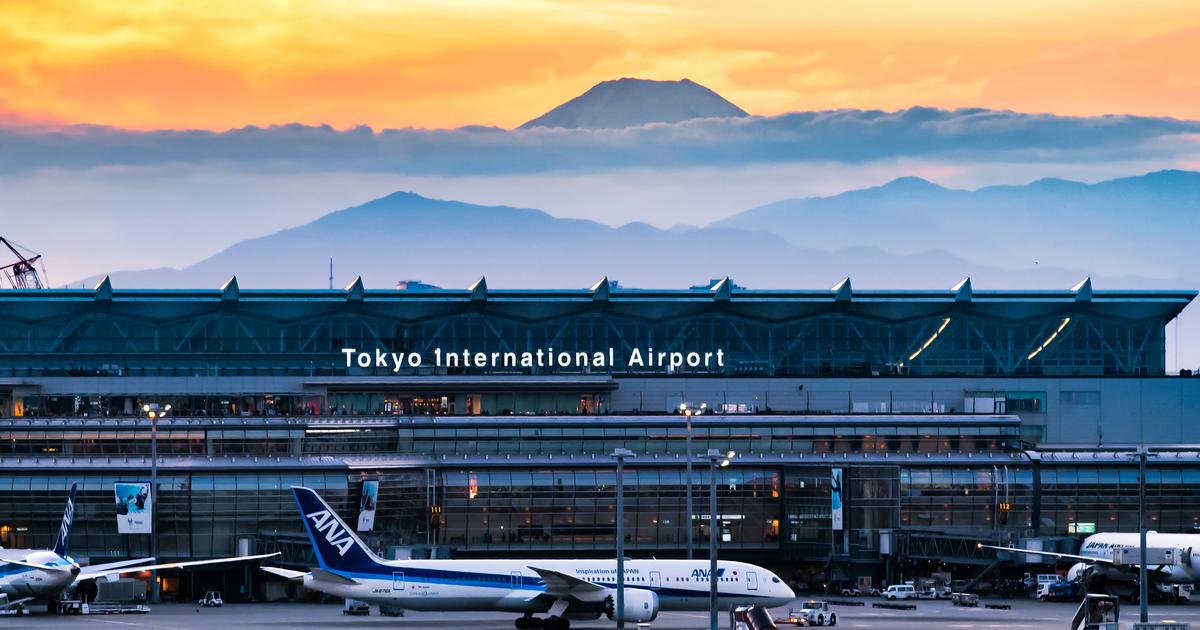It's a small room where multiple indicators are displayed in real time on a wall of digital tablets.
Vaccination, bed occupancy rate, contamination figures: for the past year, the crisis unit of the Ile-de-France regional health agency (ARS) has been orchestrating its responses to fight the Covid epidemic -19, all eyes on this data.
And the workforce has jumped since the start of the crisis, from 15 to 300 people, largely overflowing this cramped command center to now occupy an entire floor.
With a mission that is becoming more important every day, to the point of concentrating all the forces: tracking down the worrying variants, known as "VOCs", which could sweep over France.
"This is our priority," reaffirmed the Minister of Health, visiting the premises of Saint-Denis on Tuesday.
Because certainly, as Olivier Véran recalled, "no Indian variant has been detected at present in mainland France".
But it might not be long.
Or worse: the Indian variant could already be there, without our having yet identified it.
The virus sequencing necessary to identify it
In the face of this threat, a multi-layered arsenal is being deployed. On the one hand, the screening of PCR and antigenic tests, which should make it possible to identify any anomalies indicating the presence of a variant. On the other hand, the sequencing of the genome of the virus which serves, in case of doubt, to distinguish a possible new variant, such as B1617 which comes to us from India.
So, while the Health Insurance is responsible for tracing large-scale Covid-19 cases in France, the ARS is focusing on clusters and the detection of variants. In the event of a Brazilian or South African detected in a community such as a football club, a school or a health service, "we systematically send a team to widely screen all around infected people", details Laureen Welschbillig, head of the department. contact tracing.
Last week, no less than 42 groups of Brazilian or South African variants were thus able to be followed.
These two mutations of Covid-19 currently represent 0.5% and 5% respectively of contaminations in Ile-de-France, but mark "a diffuse increase" for two weeks, notes Cécile Somarriba, director of the day before and health security at ARS.
A new contact tracing protocol
As for the Indian variant, a new tracing protocol has been developed to try to detect it as quickly as possible. "From now on, during contact tracing operations, we ask each person if they have recently traveled to India or been in contact with a person from this country", explains Jérémy Fournel, deputy director in charge of the management of the epidemic. If the answer is positive, the person should be isolated, and their test should be sequenced.
A modus operandi that the services of the ARS also lead directly in connection with the Ile-de-France airports.
The positive tests of travelers coming from abroad are thus systematically screened, in order to track down potential new variants.
Because despite the need to be tested before boarding a plane for France, around 15 people per day are detected positive for Covid-19, out of an average of 600 daily tests in Ile-de-France airports.
Precarious workers, a blind spot in tracing
Two major difficulties remain.
Few laboratories are able to perform the sequencing necessary to identify the Indian variant.
From where sometimes extremely long delays, which could embolize this war of the tracing.
In addition, certain populations remain far from the testing systems.
"It is often the precarious workers of essential professions, who were particularly affected during the first wave", points Aurélien Rousseau, the director general of the ARS of Ile-de-France.
Often reluctant to be tested near their place of work and fearing difficulties with their employer in the event of sick leave, these people could constitute a real blind spot.
In order to target these profiles, screening operations in metro and RER stations, such as Châtelet, in Paris, must begin this Wednesday, in partnership with the RATP.

